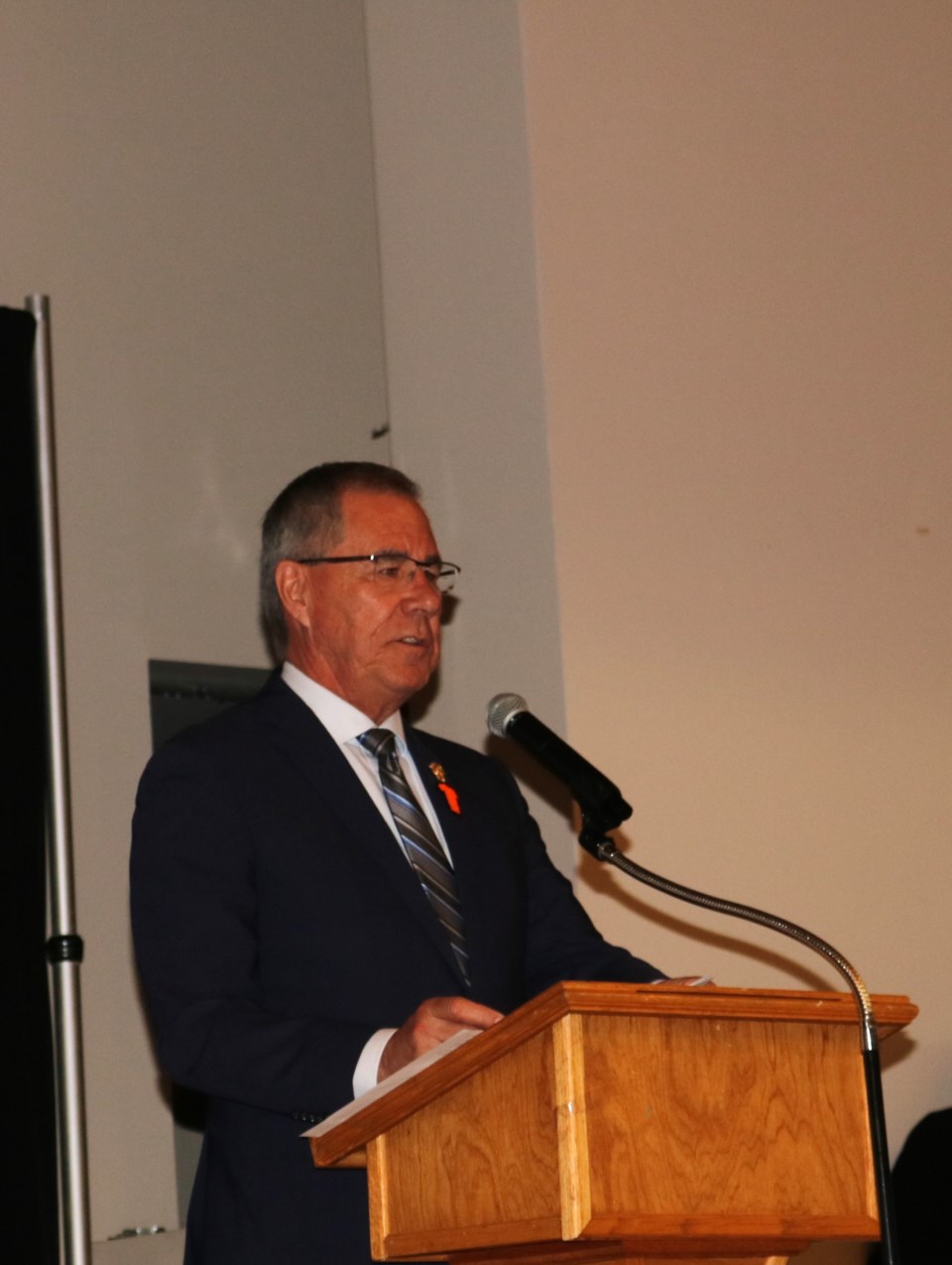YORKTON - Saskatchewan Lt. Gov. Russell Mirasty said events such as ‘Indian Residential School Gathering’ in Yorkton this week are good for those involved.
“It is important for us to come together . . . to support each other. To share our stories . . . to learn from those stories,” he said as a keynote speaker at the Yorkton Tribal Council hosted gathering Thursday.
Mirasty said of course communities are aware of the legacy of Indian residential schools, and when gathering at events focusing on that it is also time “to honour the survivors, and honour those who didn’t make it home from those institutions.”
Mirasty himself attended a residential school. Born in LaRonge, he attended school there through Grade 1, and then before starting Grade 2 was loaded on a bus with others, and taken away to a residential school in Prince Albert.
“I didn’t understand it. I was only seven years old,” he said, adding while not understanding why he was being taken from his home he did recall the trip; “six hours on a smelly old diesel bus.”
While only seven at the time Mirasty the ‘school’ in Prince Albert did not match his view of what a school was.
“It didn’t jive with what I saw there,” he said.
The school was housed in what had been an army base training soldiers for the Second World War.
The facility would be where Mirasty was schooled for four years.
“The four years was a very lonely experience for me. A very stark environment – a place that was not good,” he said.
It was not good in part because it was a place Mirasty and his classmates were not allowed their language.
“I don’t recall anybody telling me I couldn’t speak my language but we knew we weren’t supposed to . . . We all spoke English,” he said.
In that regard Mirasty was fortunate. When allowed home for summers he was back with his grandparents who raised him. They did not speak English, so he was once again back speaking and preserving his own language.
“When I went home I had no choice. Every time I went home I had to revert to speaking Cree,” he said.
Mirasty said he owed much to his grandparents, such as how to treat oneself and others, and how to work hard.
Once back in LaRonge after his four years, Mirasty said he began to see the impacts of residential schools on the community. It was also a time of deciding what he would eventually do.
“My grandparents had no concept about higher education,” he said, adding they made their living to support themselves “from the land. . . They lived on the land. Totally lived on the land.”
But, Mirasty would seek out a different path, joining the RCMP where he would spend 36 years being posted to seven provinces, performed duties in every province and territory, and participated in an exchange with the Northern Territory Police Service in Australia. He retired from the RCMP as Assistant Commissioner in 2013.
It wasn’t always easy being a First Nations officer, with Mirasty noting he often faced the question from other First Nations people ‘why was he doing it?’
While admitting he struggled with that question for a time, Mirasty said he came to understand one sometimes needs to “step into those difficult situations” in order to facilitate positive change.
“We as Indigenous people are always looking to change things around us,” he offered. “If we want to create change. . . we need to be willing to step into those difficult situations.”
Mirasty said it comes down to creating a voice for change.
“We have a voice and that certainly needs to be heard,” he said. “. . . People need to learn we can be part of the ’greater’ society.”
Mirasty said that is where taking roles such as an RCMP officer, or Lieutenant Governor, both what might be termed difficult situations, are important in terms of building a better tomorrow.
“We have to find a way for future generations . . . Were trying to set a path that is good for them,” he said.






